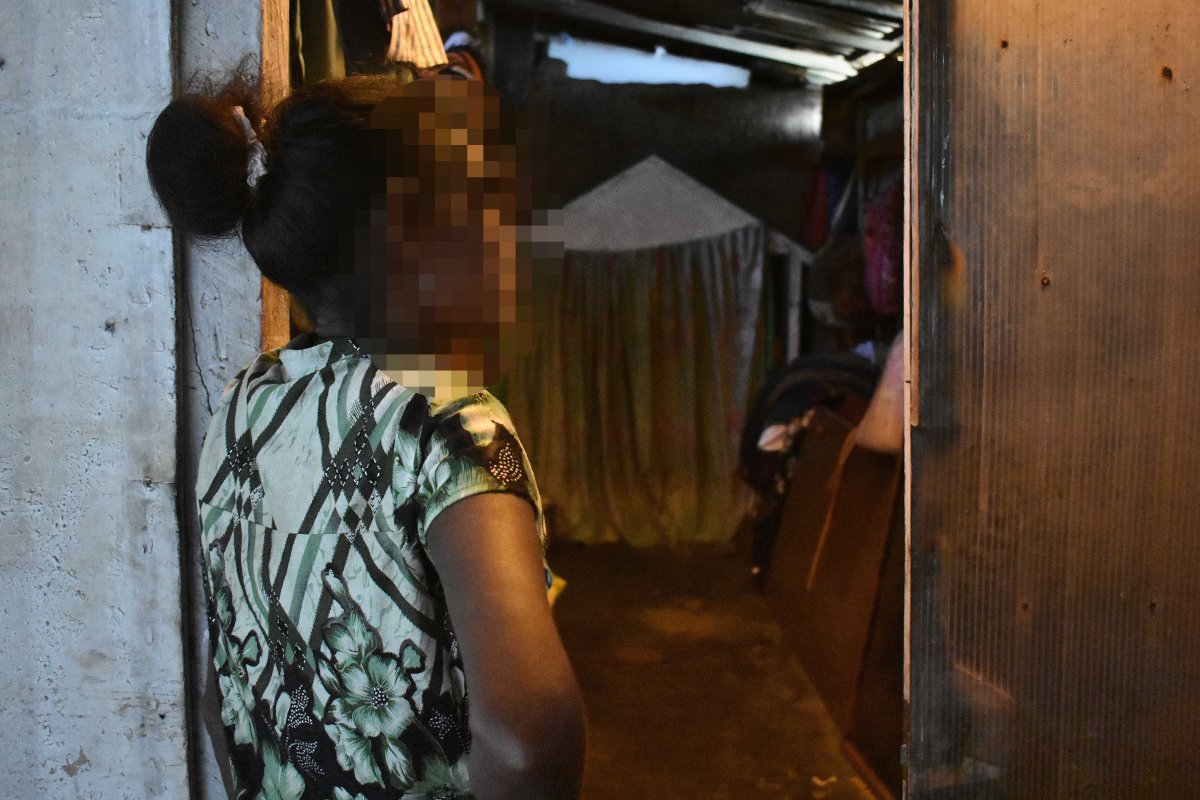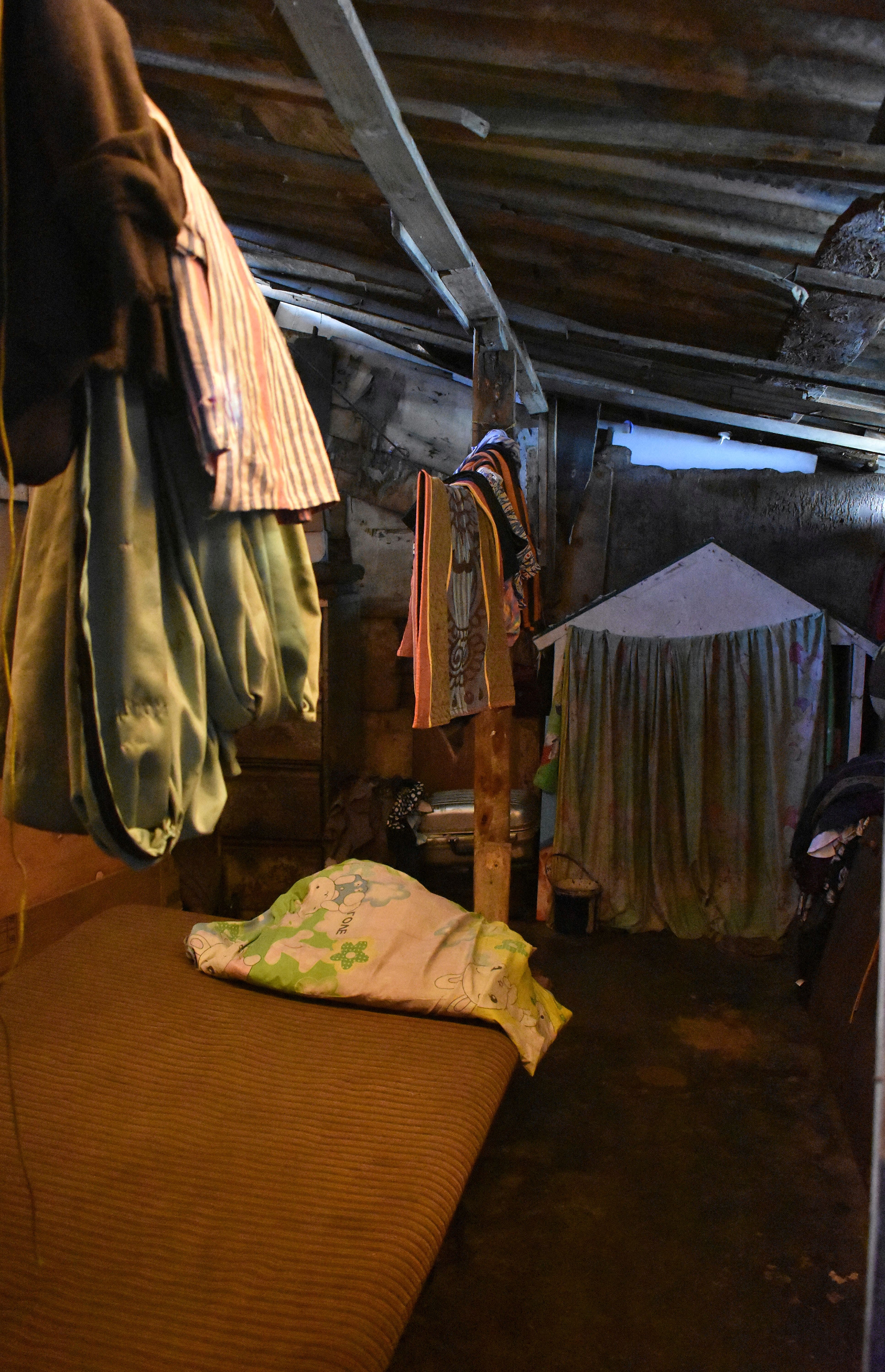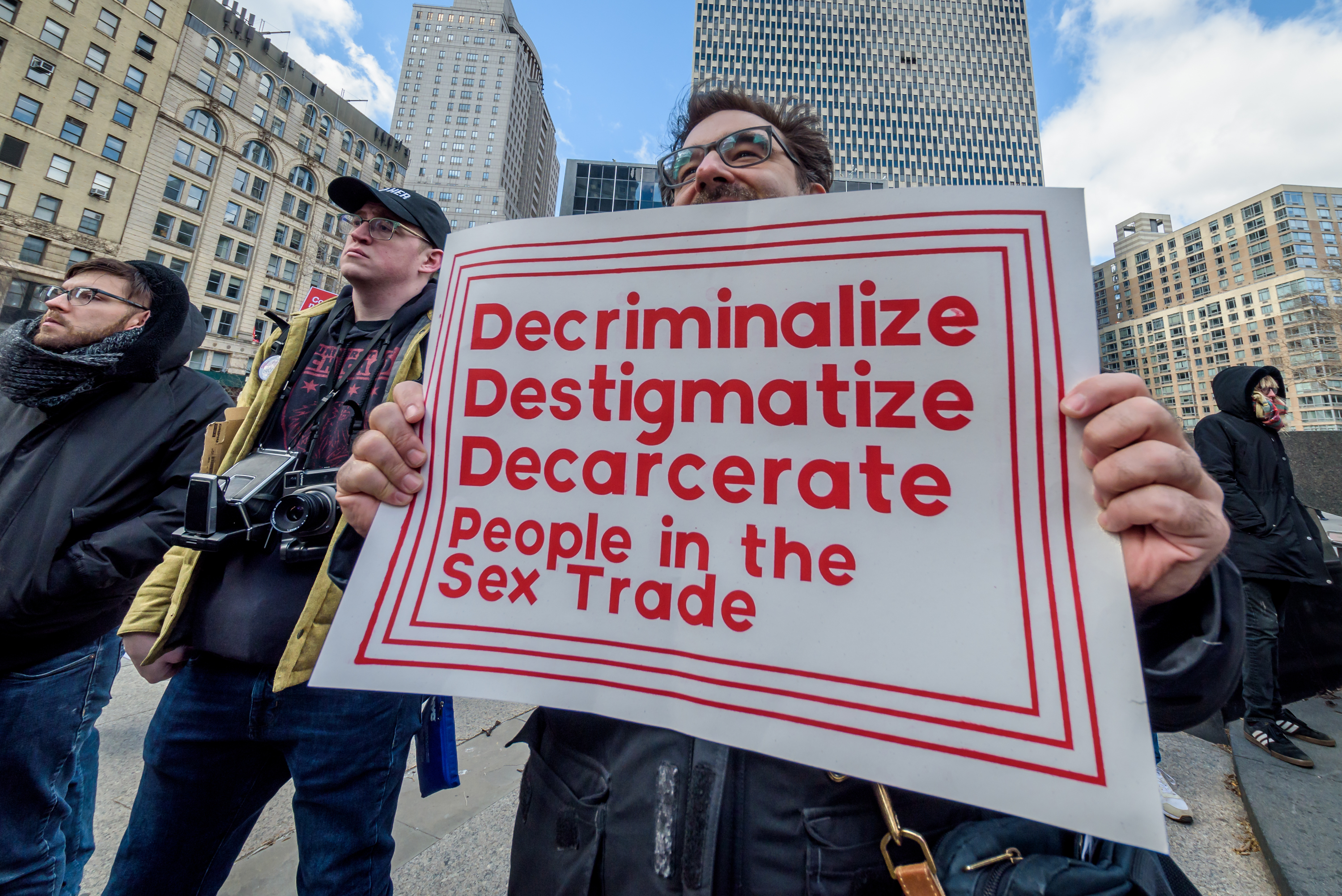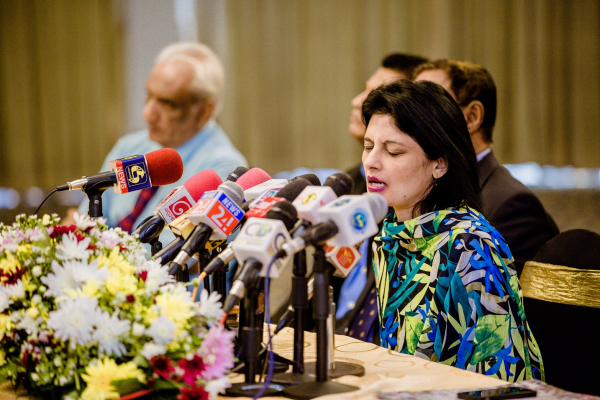
The first thing that you notice is the odour; a miasma of sea spray, sand, sweat, and sex. Wooden walls, asbestos sheet-roofed homes behind the railway station is where Mary* has lived most her life since she moved to Colombo. And the discoloured mattress in this two-room space she calls home is where she entertains her clients.
Mary is a sex worker. Although her line of work is not a novelty, sex workers are among the most marginalised communities; deprived, exploited, persecuted and discriminated against.
Offering us the only two chairs in her home, Mary told us about the many times she was harassed by the police, despite the fact that she had committed no wrongdoing.
“There are so many instances, where I was minding my own business and the Police would come and arrest me,” she said. “I wasn’t even talking to a man. Once, I was arrested when I was going to get groceries.”
“I asked them why they would arrest me when I was not doing anything wrong. Isn’t it wrong to just arrest me when I have not committed a crime? Yes, I know I’m selling myself but at those particular moments, where is the crime?” she said.

“Where Is The Crime?”
In February, the Colombo Magistrate Ranga Dissanayake ruled that there are no provisions in the Penal Code of Sri Lanka to charge a sex worker. The Magistrate said the only way a person could be charged in the industry, is for maintaining a brothel or soliciting women as sex workers, also known as pimping.
Many saw the ruling at the time — even though it was from a lower-level court — as facilitation for sex worker rights and a breakthrough for lobbyists of the rights movement. It came after years of debates, battles fought against harassment of sex workers by law enforcement and those who procure their services.
Much of the country’s law surrounding prostitution dates back to the colonial rule; the Vagrants Ordinance (1842) and the Brothels Ordinance (1889). Neither of these laws has been amended in recent times.
Section 2 of the Vagrants Ordinance dictates that those who behave riotously or disorderly in public streets must be held liable to a fine not exceeding ‘five rupees’, while Section 3 (b) specifically identifies ‘idle and disorderly persons’ as ‘every common prostitute wandering the public street or highway, or in any place of public resort, and behaving in a riotous or indecent manner’.
Section 7 (1) (a) of the Vagrants Ordinance dictates that any person in a public place soliciting another for the purpose of the commission of any act of illicit sexual intercourse or indecency is guilty of an offence liable to imprisonment of a period not exceeding six months, or to a fine not exceeding Rs. 100 or both.
Mary cannot remember exactly when she was first arrested and charged with prostitution. However, she did recall what happened that day.
“The first time I was arrested was when I was working at a brothel in Nugegoda,” she said. “I didn’t know what was happening then. The Police came and told me to come with them. I figured out it was for this [prostitution]. I was fined Rs. 5,000.”

Running A Brothel
Leaving Mary at her home, we visit Mihiri* (42) at her workplace. Mihiri has worked all her adult life at an ayurvedic spa, one of many on Marine Drive, Colombo.
It is common knowledge that many ‘spas’ or massage parlours act as a front for brothels.
“Spas are raided constantly by the police,” Mihiri told us. “Normally, what they do is send in a ‘deco’ — a decoy or an undercover police officer, usually in civilian attire — as a client. The ‘deco’ would ask if they could have sex with the girl who gives the massage.”
Mihiri’s workplace is strictly against this. “We do not allow the masseuse to have sex with the clients,” she said. But raids are conducted on the spa she works at even when the decoy Police officer fails to solicit intercourse from the women there.
“There really is no reason for them to raid and arrest us, especially when we are not doing anything wrong,” Mihiri said. “We are a licensed establishment. But they raid and arrest us to fill their quotas [the number of arrests a police officer is expected to make within a time frame],” Mihiri said.
As per the Brothel Ordinance No 05 of 1889, it is the person managing or assisting in the management of a brothel that is punishable by law.
Prasad Sanjeeva Gamage, the project coordinator of the Stand Up Movement, one of the many groups that lobby for sex workers’ rights in the country, explained that whenever women at a spa house are arrested and produced before a court, chances they will be acquitted and the manager of the establishment prosecuted under the Brothel Ordinance are higher.
“The main areas this happens is in Bambalapitiya, and the arrests are made by officers of Peliyagoda and Walana Anti-Corruption Police. If the spa house does not permit their masseuses to have sex with their clients, then the girls cannot be charged under the Brothel or Vagrants Ordinance. That is why the court acquits them,” he said.
Under general circumstances, police units must include a Women Police Constable to arrest women.
Despite this, the police continue to make wrongful arrests. “There were times when the police raided in the middle of the day, not even in their uniforms, [and] took us in. But they wouldn’t charge us until late that night. They would charge us saying we were arrested while we were out on the street. That is wrong,” Mihiri said.

Seeking Regularisation
“This is a problem that cannot be solved simply by passing laws that would decriminalise sex work,” Stand Up Movement’s Executive Director Ashila Dandeniya told Roar.
“What we seek is to establish a societal understanding of sex workers. If society continues to look down on these people, without any empathy and acceptance, there would not be any legal grounds for a decriminalisation procedure,” she said.
The justification for this argument is simple, according to Dandeniya; there is a large demand for commercial sex in the country and there is a corresponding supply of the service. However, social stigma has largely prevented acceptance and legalisation of this fact, leaving those in the industry —and those who procure services from them —vulnerable to all manner of ill-treatment.
Dandeniya is also of the opinion that if sex work is legalised at a time the country is not prepared to accept sex workers, there would be more problems for sex workers, worsening the existing challenges they face.
“When we were discussing this problem during one of the workshops, a sex worker herself brought up one of the issues. She inquired, ‘If a law is introduced, it will set a minimum price for a deal at a very small level like Rs. 50. How is that going to solve anything?’” Dandeniya said.
Whichever way, lobbyists believe the first and immediate need is to repeal outdated colonial legislature under which those sex workers are continually harassed. “We simply cannot have a law that restricts anyone’s — not just sex workers — basic human rights,” Dandeniya emphasised.




.jpg?w=600)


.png?w=600)
.jpg?w=600)